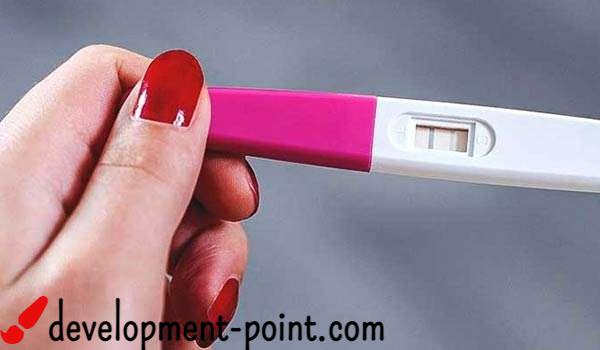What are the signs of pregnancy from the face?
Abdominal growth, nausea and dizziness are early symptoms of pregnancy, but they are not the only symptoms that indicate pregnancy. There are some signs that tell you that you are pregnant through your face. Learn in this article the signs of pregnancy from the face in detail.
The reason for the appearance of signs of pregnancy on the face
The reason for the appearance of signs of pregnancy from the face is the hormonal fluctuations that occur during pregnancy, as changes in the levels of estrogen and progesterone affect the skin of all pregnant women, but what are the signs of pregnancy from the face?
Signs of pregnancy on the face
Signs and symptoms of pregnancy are more than just weight gain or food cravings. There may be changes in your skin that indicate pregnancy as well. Some women may have thicker hair or a pinkish color to their cheeks.
As for others, pregnancy may lead to the appearance of pimples, a change in skin color, and some other changes in the skin, and you may develop varicose veins, and at other times it may cause excessive sensitivity that makes you unable to wear the mask.Your skin or beauty products, signs of pregnancy on the face include the following:
Clear and glowing skin
Scientists believe that pregnancy hormones, oils in the skin, and an increase in blood volume by 40% makes the skin of a pregnant woman appear brighter during pregnancy, as hormonal changes in pregnancy provide more oxygen and nutrients and extend them to all organs of the body, including the skin, and the weight gain that Plumping and firming the skin, making it look smooth, is an additional reason for glowing and clear skin.
Pills and white and black heads
One of the signs of pregnancy from the face is the appearance of pimples, as the increase in progesterone levels leads to increased production of sebum (skin oils), which causes pimples to appear, so choose acne products carefully during pregnancy, and avoid products that contain retinol, retinoids, and salicylic acid Because of the possibility of birth defects.
Since retinol and retinoids are derivatives of vitamin A, oral vitamin A in high doses can cause serious birth defects in unborn babies. Retinol or topical retinoids are unlikely to harm an unborn baby, but there are no statements regarding the possibility of using these ingredients during pregnancy.
While doctors recommend using benzoyl peroxide instead of the previous substances, or some natural topical treatments such as tea tree oil and lavender, they also confirmed that other acne treatments such as intense pulsed light (IPL) treatments and microdermabrasion are also safe during pregnancy.
Darkened skin patches
About half of pregnant women develop melasma, which appears as large, dark spots on their face, sometimes called the “mask of pregnancy” as it is a sign of pregnancy from the face, and this excessive melasma is usually found symmetrically on the cheeks, nose and forehead, and increased levels of hormones during pregnancy It is one of the factors causing its appearance.
As estrogen, progesterone, and melanocyte-stimulating hormone (which unifies skin color) are higher during the third trimester of pregnancy, which increases the possibility of melasma. To prevent melasma or prevent its development, there are a few options that you can follow, including avoiding sunlight, and using sunscreen. For a broad spectrum sunscreen (which blocks both UVA and UVB rays).
After giving birth and finishing breastfeeding, you can use lightening products that contain licorice, vitamin C, kojic acid, soy, or retinol.
Increase hair density
Usually, each hair grows for 2-6 years, then it stays for a few months before it falls out, but the hair of a pregnant woman stays longer before it falls out, which leads to an increase in the density of her hair.
Hair everywhere
The rapid growth of hair will not stop at your head only, but you will also find hair growing rapidly in other areas of your body, including your face, bikini line, armpits, and legs. You can then use hair removal creams, but for small areas such as above the lips, and avoid using them on the bikini line.
Because these products contain active chemicals such as barium sulfide powder and calcium thioglycolate, which can be absorbed into the bloodstream and thus affect the fetus, they have not yet been tested and proven safe for use during pregnancy.
The hair that grew during pregnancy will start to fall out around 3 to 6 months after giving birth, a condition known as telogen effluvium, so do not rush to book laser hair removal sessions and let things return to normal first, as you may not need these sessions.
Increased skin sensitivity
Your feelings aren’t the only sensitive thing during these nine months. Pregnancy can make your skin extra sensitive to everything, even products or substances that didn’t bother you before, so use gentle, fragrance-free products, and always test out any new skincare products on your wrist or back. your ear before using it.
skin tags
The moles you already have may get larger or new moles or skin growths may appear. Some women may develop pyogenic granulomas, or dark growths also called pregnancies. Although most are harmless, you should consult a dermatologist any time you see a mole. A new or changed spot or patch of pigment on your face.
Skin cancers can appear during pregnancy, so it is a good idea to get them checked out. It is not easy for the average person to tell which one is benign. If moles are harmless, wait until after childbirth to remove them, but do not delay treatment if they are cancerous.
Notice; After you know the signs of pregnancy on the face, you should not take any medications or follow any of the recipes mentioned in the previous paragraphs to get rid of a specific condition that you have without referring to a specialized doctor and making sure that they are compatible with your health condition first.
Frequently Asked Questions
Is dry face a sign of pregnancy?
Yes, you may experience dry skin and lips during pregnancy, but it is usually a normal pregnancy symptom and nothing to worry about.
Is the appearance of pimples in the face of signs of pregnancy Bold?
The appearance of pimples or pimples on the face is a general sign of pregnancy due to the hormonal changes and fluctuations that occur during pregnancy, but it is not a sure sign of a boy.
Is pale face a sign of pregnancy?
Yes, paleness of the face can be a result of overexertion, insufficient sleep or vomiting during pregnancy, or it may be a result of your need for more iron and folic acid to produce enough healthy red blood cells during pregnancy.
Is facial swelling a sign of pregnancy?
Slight swelling is to be expected during pregnancy, but if sudden swelling occurs in both your hands and face, it could be a sign of pre-eclampsia.
Is yellowing of the face a symptom of pregnancy?
Yes, as a pregnant woman can develop what is known as cholestasis in the liver, which slows or stops the normal flow of bile from the gallbladder, and causes itching and yellowing of the skin, eyes and mucous membranes.
Is blackness of the face a sign of pregnancy?
Yes, it is common for dark spots to appear during pregnancy, a condition called melasma. Melasma may also sometimes be referred to as the mask of pregnancy because the spots usually appear around the upper lip, nose, cheekbones and forehead in the form of a mask.
In the end, after knowing what are the signs of pregnancy on the face and their causes, you should not neglect to confirm pregnancy through medical tests.

